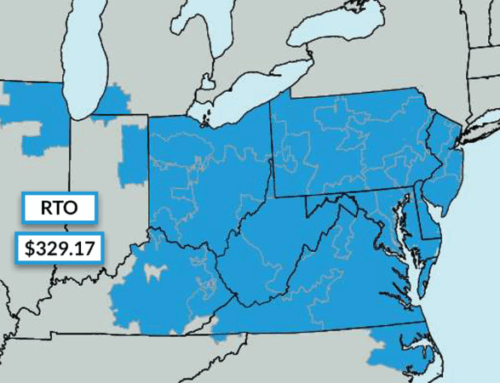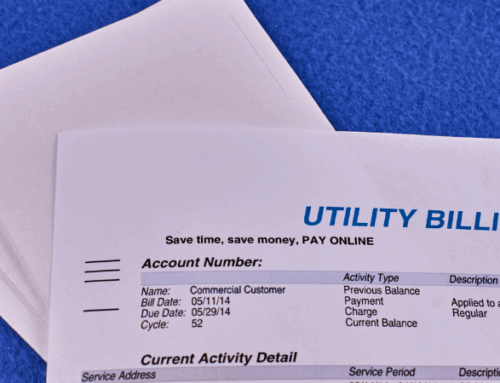In deregulated energy markets, businesses have more flexibility when purchasing energy, allowing them to shop for competitive rates and favorable energy contract terms. This flexibility, however, can also bring complexity. When deciding on the best way to procure energy, companies often face a key choice: should they work with energy brokers to shop rates on their behalf or engage directly with direct energy suppliers?
Each approach offers distinct advantages and disadvantages, and the right choice depends on the specific needs of the energy customer. This article explores the differences between energy brokers and direct energy suppliers, the pros and cons of each option, and how businesses can make informed decisions when shopping for energy.
Energy Brokers vs. Direct Suppliers
In deregulated markets, customers are not bound to a single utility provider. Instead, they can choose from various retail energy suppliers offering competitive rates, pricing plans, and contract terms. In these markets, there are also energy brokerage firms and individuals who help shop and negotiate third-party energy contracts. This opens up two primary pathways for businesses seeking energy contracts: they can work directly with energy suppliers or engage with an energy broker who will act as an intermediary to find the best available deal.
What Are Energy Brokers?
Energy brokers act as intermediaries between energy customers and suppliers. They help businesses navigate the complexities of the energy market, presenting various pricing plans and contract options from multiple suppliers. Their primary role is to assist businesses in finding the best energy contract based on their specific consumption patterns, budget, and long-term energy strategy.
Licensed energy brokers typically work with a network of energy suppliers, giving them access to a wide range of options for their clients. By leveraging their industry knowledge, brokers can often negotiate more favorable rates and contract terms than businesses might be able to secure on their own.
What Are Direct Energy Suppliers?
A direct energy supplier is a company that generates or purchases energy in bulk in the wholesale electricity markets and sells it directly to customers in the retail markets. In a deregulated state, these suppliers compete for customers by offering different rates, contract terms, and energy plans. Businesses can engage directly with these suppliers, eliminating broker middlemen and securing energy contracts directly from the source.
Suppliers typically offer a range of plans that vary in terms of fixed and variable rates, contract lengths, and energy sources, such as renewable or traditional fossil fuel options. Customers can shop for energy based on their needs and can even craft hybrid energy supply products to match risk tolerance and budgetary goals.
What Makes More Sense?
When deciding between working with an energy broker or a direct supplier, businesses need to consider their specific energy needs, market knowledge, and resources. Each option may be more suitable depending on the type of business and its energy consumption patterns.
Small to Medium-Sized Businesses
For small to medium-sized businesses that may not have the internal resources or expertise to navigate the complexities of the energy market, working with an energy broker often makes more sense. Brokers can provide a tailored approach by analyzing the business’s specific energy usage and presenting the best options from multiple suppliers. This helps smaller businesses save time and ensure they are securing a competitive rate without having to shop around themselves.
In addition, brokers are often able to negotiate favorable contract terms that a smaller business may not be able to achieve on its own. For businesses without dedicated energy management staff, a broker’s expertise can be invaluable, allowing them to focus on their core operations.
Large Commercial and Industrial Customers
Large commercial and industrial customers often consume substantial amounts of energy, which can give them leverage when negotiating directly with suppliers. In these cases, working directly with a direct energy supplier may be more advantageous, as these businesses often have the internal expertise to manage their energy procurement strategies.
Energy suppliers are often more flexible with large customers, offering tailored contracts with favorable terms that reflect the size and scope of their operations. These customers might also benefit from engaging in the wholesale electricity market, giving them access to even more competitive pricing.
Large customers can also benefit by working with a sophisticated energy brokerage firm or consultant. Despite energy being a large expense, many companies still need dedicated energy managers on staff. An expert broker can lend market guidance and support in negotiating the right contract price structures.
Pros and Cons Of Each Solution
There are many pros and cons to consider when choosing between an energy brokerage firm and a direct energy supplier. Let’s explore each option in more detail below.
Energy Brokers: Pros and Cons
Pros:
- Access to multiple energy suppliers, providing a wide range of options.
- Expertise in energy markets, helping businesses navigate complex contracts.
- Ability to negotiate better rates and terms on behalf of the customer.
- Saves businesses time by handling the energy procurement process.
Cons:
- Brokers may charge a commission, which can increase the overall cost.
- Not all brokers are created equal—some may prioritize suppliers that pay them higher commissions.
- Businesses must rely on the broker’s expertise and trust that they are presenting the best options.
Direct Energy Suppliers: Pros and Cons
Pros:
- Direct relationships with suppliers can lead to better negotiated terms for large businesses.
- Eliminates the middleman, potentially reducing costs.
- Larger businesses can customize contracts directly with suppliers to suit their needs.
Cons:
- Limited access to supplier options compared to working with a broker.
- Negotiation can be time-consuming, requiring more resources and energy expertise.
- Smaller businesses may struggle to secure favorable terms without a broker’s assistance.
Choosing the Right Solution for Your Energy Needs
Deciding between using an energy broker or working directly with an energy supplier depends on several key factors. Here are some important considerations businesses should take into account before choosing a solution:
1. Energy Usage
Larger businesses with significant energy consumption might benefit from direct negotiations with suppliers, while smaller businesses may prefer the expertise and market access that an energy broker provides.
2. Market Knowledge
Companies that have an in-house energy management team might prefer to engage directly with suppliers, but those without this expertise may find that working with an energy broker saves time and yields better results.
3. Contract Terms
If your business requires specific terms in its energy contract, such as flexibility in demand response or natural gas hedging, it’s essential to consider which route—broker or direct supplier—offers more customization.
4. Budget Constraints
While brokers can help businesses save on energy costs, they also charge a commission for their services. Depending on your business’s budget, this could be a deciding factor when choosing between a broker and a direct supplier.
5. Time and Resources
For businesses with limited time or resources to dedicate to energy procurement, working with an energy broker can streamline the process and reduce the burden of negotiating and managing energy contracts. On the other hand, large businesses with dedicated energy teams may prefer the control and direct access that comes with negotiating directly with energy suppliers.
Find The Best Fit For Your Energy Needs
The decision between working with energy brokers or engaging directly with direct energy suppliers is not one-size-fits-all. It depends on your business size, energy needs, expertise, and resources. Brokers can provide invaluable services for small businesses or those lacking energy market expertise, while larger commercial customers may prefer the direct control and flexibility of working with suppliers.
Understanding your energy consumption and the deregulated energy market can help guide your decision. For businesses seeking expert guidance, energy brokers like Diversegy offer a valuable service by helping companies navigate complex energy markets and secure the best deals tailored to their specific needs.
If you’re looking to reduce energy costs or navigate the complexities of the deregulated energy market, contact our team today for expert advice and solutions designed for your business.



